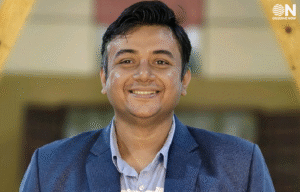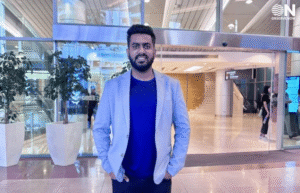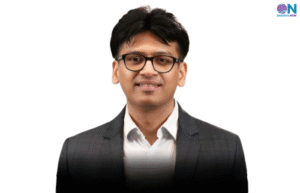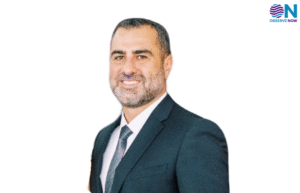New Delhi: In the ever-changing realm of HR, developing a strong talent strategy and hiring method is crucial for a company’s prosperity. As businesses tackle the intricacies of today’s workforce, achieving the right mix involves carefully weighing the shifting demands of the industry and the ambitions of employees.
Looking ahead, organizations face the task of embracing inventive methods that incorporate the wisdom of seasoned experts, the novel insights of newcomers, and the valuable input of those re-entering the workforce, with a particular focus on women. In this regard Shreya Singh, ObserveNow interacted with Saswati Sinha, Head HR – India and MEA, Evalueserve.
Here are a few excerpts from the interview:
What’s your organization’s approach to talent strategy and hiring? Is there a perfect recipe to get it all right or is it always a balanced view?
In 2021, we committed to becoming an employer of choice through our “North Star” strategy. We’ve invested in strengthening our culture with learning programs, collaboration techniques, inclusiveness initiatives, and core talent management. This includes flexible work arrangements, improved recognition programs, equitable pay practices, and more. In line with the above, our hiring strategy is towards getting the best fit talent and upskilling as per business requirements. For that purpose, we have built a robust Employee Value Proposition which is part of our talent attraction strategy.
There is no perfect recipe, as we all know, its always about prioritizing and consistently evolving to create a balanced view.
As an HR leader, how do you ensure that the workforce you have today is the one you need tomorrow? What is your master plan for the skills update of the team?
Getting the workforce future-ready is one of our critical focus areas.
Given the fact that we work across diverse industries and skills, it is not always possible to on-board talent who has all the skills required for the role. To ensure that we have a focused approach towards employee upskilling, we have built our internal learning hub, Evalueserve University. The university focuses on five main pillars: onboarding, domain, and functional, technical and digital skills, behavioral, and communication skills. The University organizes bootcamps annually for newly recruited campus hires joining our organization. These individuals undergo an intensive 6-month training program tailored to their specific line of businesses or domains.
To be agile in our upskilling, we have integrated technology into our programs. This includes leveraging in-house tools and developing in-house digital content promoting self-learning while also providing external certifications among others. We’ve also implemented customized programs across our various line of businesses for optimal growth and ROI. One of our LoBs emphasizes this strategy, utilizing a systematic approach that includes regular impact analyses through tests. This ensures that our people are continually evolving to meet the dynamic demands of tomorrow.
What innovative approaches are businesses adopting to retain top talent in an increasingly competitive market? How are they prioritizing employee well-being and career growth?
Every business is experimenting with what works for them. Like I always say, one hat does not fit all. At Evalueserve, our strategy focuses on creating a conducive work environment, fostering professional growth, and promoting continuous learning, making us an employer of choice in the industry we operate in. We foster a work culture that values flexibility and inclusivity. To that end, we provide work-life balance through flexible work schedules and remote work options wherever necessary.
Professional development and constant upskilling are a cornerstone at Evalueserve. We provide comprehensive training, mentorship, and upskilling opportunities. Internal mobility enables our people to explore diverse roles within the organization. We firmly believe that retaining top talent involves not only monetary benefits but also empowerment and opportunities for personal and professional development.
We believe that regular feedback from our people is critical in defining the people practices and culture at Evalueserve. We encourage our people to reach out to the leadership and talent business partners to offer relevant feedback and highlight concerns. We also use our internal AI tools and chatbots to conduct sentiment analysis on employee feedback and solve their immediate queries. Our Open-Door policy encourages people to connect and communicate freely with their leaders.
How do you approach diversity and inclusion in your hiring practices, particularly in the context of hiring veteran workforce or Women returning to work?
At Evalueserve, we are committed to fostering diversity and inclusion at the workplace. This is evident in our approach to talent attraction, acquisition, and retention.
We actively seek candidates from diverse backgrounds valuing the unique skills sets and perspectives they bring to the team. When it comes to our hiring processes, we are dedicated to maintaining fair practices. Both conscious and unconscious biases are meticulously avoided to ensure that all candidates are evaluated based on their merits, skills, and qualifications. This commitment is not only ethical but also contributes to the creation of a workplace that is truly inclusive.
We also leverage technology to create a robust and standardized process. This has not only streamlined our recruitment process but has also enabled us to eliminate potential biases ensuring all candidates are evaluated objectively.
Moreover, we believe that diversity and inclusion are not only crucial in attracting and acquiring talent but also in retaining it. Our open and inclusive culture fosters an environment where every individual is valued and respected. We actively promote our stance on LGBTQ rights, racial equality, gender diversity, and more. We communicate our commitment through periodic internal communication, social media conversations, and messaging to clients and suppliers.
In what ways can your organization support and empower freshers to understand work life, chart a path for them, and find their sense of purpose in alignment with the company’s vision?
At Evalueserve, we believe in providing a supportive and engaging environment that empowers freshers to understand the dynamics of work life, chart their career paths, and align their personal goals with our company’s vision. Here are several key initiatives we undertake to achieve this:
Comprehensive Onboarding Program: We have a robust onboarding program that includes extensive recruitment drives to some of the best universities in India and hiring nearly 200-300 graduates annually. The onboarding process is thoughtfully designed to provide a holistic understanding of the business, company ethos and values. This starts with intensive bootcamps that cover various aspects of the industry, company policies, and job-specific skills. Throughout the onboarding journey, recruits undergo rigorous assessments and tests, ensuring a comprehensive grasp of the subject matter. Ultimately, this strategic onboarding process facilitates a smooth transition from recruitment to joining the main Lines of Business.
Structured Career Development Framework: It is essential to guide employees on the correct path right from the outset, and this holds particularly true for their first jobs. We offer a diverse global work environment, working with multicultural teams across borders. We also place a strong emphasis on continuous learning and improvement. Through mentorship, on-the-job training, and structured internal and external programs, we provide our team members with market-leading opportunities to enhance their skills. We have multiple examples for leaders who began their journey with us as campus hires and today, they’ve grown into senior leaders leading big teams in critical roles.
Our new hires are actively encouraged to share their insights and experiences. This contributing to a feedback loop that not only enhances individual performance but also enables us to continuously evolve and support our people in their growth journey.
Regular Connects with HR: We conduct regular Pitstop Connects with the HR team to gather valuable feedback. We look at constructive feedback as a means of positive reinforcement ensuring that are people are heard and their feedback adhered to. Moreover, this also translates to managing client expectations, with regular feedback loops ensuring that any client input is diligently considered and shared with employees for ongoing refinement.
We work hand in glove with technology. We collect feedback at regular intervals using our inhouse AI tools, thereby facilitating prompt course corrections as required.
Performance Development Programs: We conduct semi-annual performance reviews and annual talent appraisals, focusing on continuous growth through SMART KPIs and individual development plans aligned with organization and client expectations. Our balanced scorecard approach defines performance goals based on each employee’s role, with reporting managers playing a central role in the process.
Is there any advice you would like to give to the new HR Professionals entering the industry?
My only advice for all the new professionals will be to stay relevant, agile, and flexible. Skills are acquired and honed and to ensure that, learning, un-learning and re-learning will always remain your three important pillars.





























